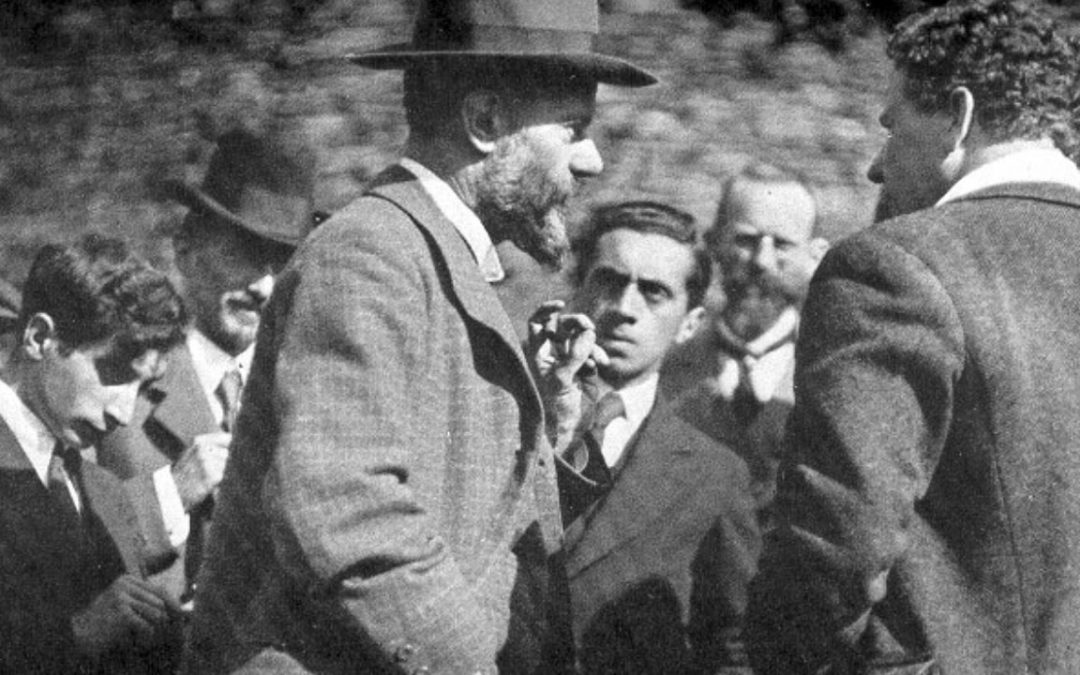Germany has produced a staggeringly high number of great philosophers. Their impact on world events and the development of culture cannot accurately be estimated due to the ever-changing nature of zeitgeist. But we know for certain they helped not only shape the modern German language, but the modern world. Many of the most beautiful and interesting pieces of human expression were achieved by German philosophers. To reflect this, I thought I’d list my ten favorite German philosophers. Their inclusion on this list does not necessarily mean Eskify contributors agree with their views or theories.

Martin Heidegger
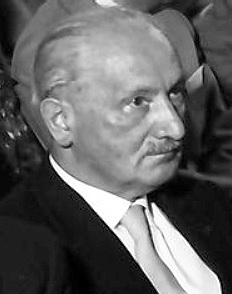
Copyright Willy Pragher / (CC BY-SA 3.0)
Martin Heidegger is known for his unnecessarily complex use of theatrical language. He was also known for his criticism of modern human existence. He said we are out of touch with our nature as animals. We avoid confronting thoughts of common existence, the one thing we have in common with literally everything else in the world. We have been socialized to accept cultural aspects of life as if they are normal. Heidegger wanted us to question everything, and realize that what we are socialized to believe may not actually be normal, but bizarre and unnecessary. That we should be less materialistic and learn to accept death as part of our destiny. He was an isolated man, often spending days alone thinking about the nature of existence.

Edmund Husserl
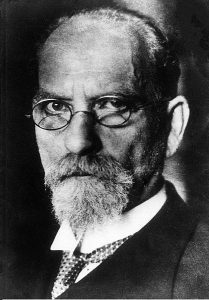
Edmund Husserl founded a philosophical school called Phenomenology. Phenomenology is the study of conciseness and experience. He believed a scientific approach could be taken in our aim to understand the true nature of consciousness. Many argue this helped shape the environment in which psychoanalysis could emerge. If true, this would make him an incredibly influential figure of his age. His analytical nature can be traced back to his time as a student studying mathematics at a high level. From that, he was specifically concerned with the philosophy of mathematics, considering it to be the natural language of the universe. Not only is he among the greatest German philosophers, but mathematicians also.

Karl Marx

Karl Marx is known as the father of communism, because he was. His writing was so revolutionary and controversial that Britain was the only European nation to grant him residence. He argued that capitalism is failing humanity, and as an economic system it will one day been overthrown after the working classes rebel against it. He noted a disconnection between the working class person and the ideal occupation of that person, than capitalism is built on the exploitation of the lower classes. He taught that marriage is little more than a business contract, and that we must therefore feel no obligation to ever get married. Marxism went on to become one of just a handful of ideologies that shaped the modern world.

Ludwig Feuerbach
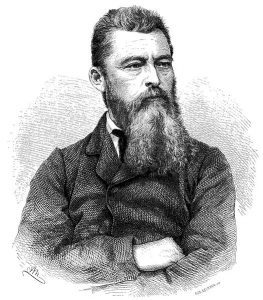
Ludwig Feuerbach was an influential critic of religion. His skeptical thoughts on Christianity inspired other German philosophers, like Karl Marx, to doubt the absolute teachings of the church. He sought to explain religion in the context of human history, without assuming it’s teachings are true. He thought religion was merely a reflection of human nature, that we are god, collectively. He was an atheist, believing that humanity may achieve what religion teaches, but that there is no god – that religion is important for understanding human thought. But he wasn’t aggressive towards Christianity, but sympathetic to it’s beliefs and to those who believe them.

Johann Gottlieb Fichte
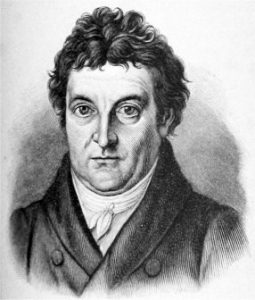
Johann Gottlieb Fichte was one of the most influential figures leading up to the founding of German idealism, a philosophical movement teaching that what we observe depends more on how we observe it than it’s physical nature. The idea is that we see what we focus on, and often don’t see what we neglect. He came up with a now famous idea known as “Thesis, antithesis, synthesis”. This is the idea that the truth often lies somewhere in-between the two sides of an argument. On one side you have a thesis, with an antithesis on the other. But the truth will be a combination of the two – it will be a synthesis.

Max Weber
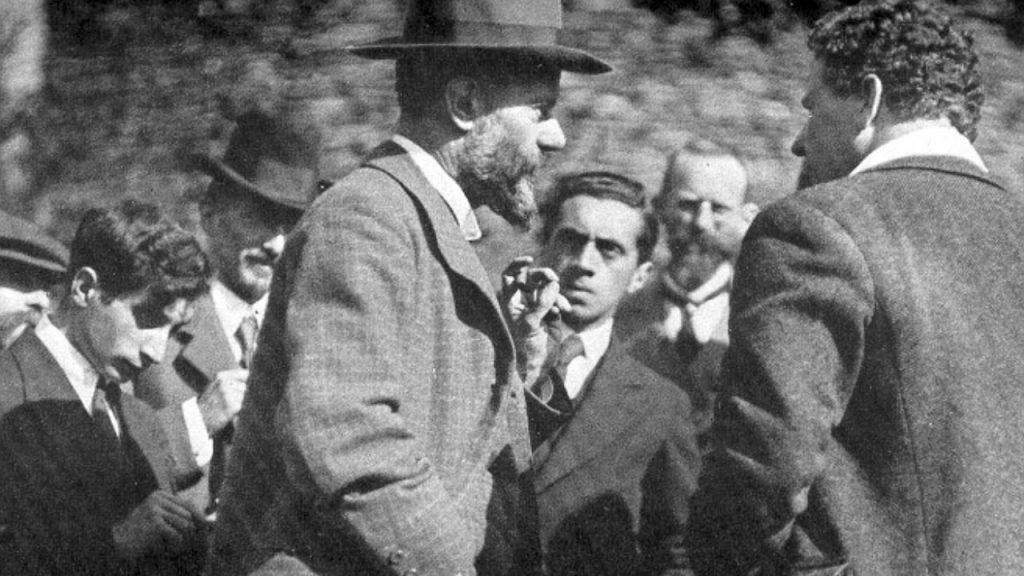
Max Weber was so well respected within Germany that he was involved in drafting the Weimar constitution. He examined the “protestant work ethic” – a tendency for people of that religion to live selfless and harsh lives. He argued that people are socialized by religion to be capitalists, whereas they would naturally be something else. That we’re trained be religion to be materialistic, and steal from our communities for the sake of capitalism. To abandon Christianity would, in his opinion, be to abandon capitalism. He pointed out that the nation state has successfully achieved a monopoly on the legitimate use of violent force. Later in Weber’s life, he founded a political party and attempted to win election to the German parliament.

Arthur Schopenhauer
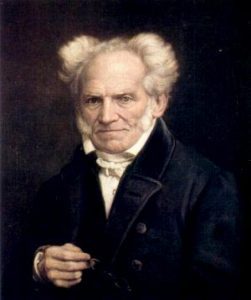
Arthur Schopenhauer spent a lot of time thinking about emotions, specifically love. He thought love was just a means to create children. He said romance was so important only because the romantic is what leads to human reproduction. He said that love clouded judgement when it comes to finding and securing mates for reproduction, and that was a result of “unbalanced childhoods” – that people often look for partners who complete them, who make up for what we lack. He said we must acknowledge this, and also that our purpose in life is to peruse happiness. But that the world is against us, it’s geared against happiness. He said that life has no real wealth, and we never truly achieve happiness.

Immanuel Kant
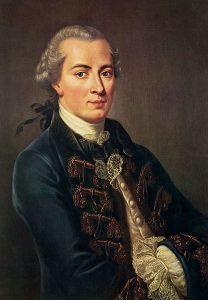
Immanuel Kant was especially concerned with ethics and morality. Of modest background, he became a leading philosopher of the age of enlightenment. He wanted to see logic and reason taking grip of European societies, rather than religion, which he saw as irrational and backward. He said we should only do to others what we would like done to ourselves. Although now a well known idea, it was unusual for his time. But he also said we should not blindly be good to others, but taking their own character into account. He spent a lot of time worried about liberty. He said we are only free for as long as we act in our own interest. This makes him different from most others, who see liberty as the freedom to do what we like. His work is easier to understand than most other German philosophers due to his blunt use of basic language, which is easily translated.

Friedrich Nietzsche
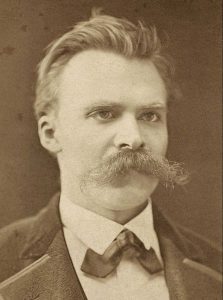
Friedrich Nietzsche lived a sad life, only gaining recognition after his death. He taught that we should accept envy, and that it’s not actually a bad thing, it motivates us. And he said that the thing that truly drives us humans is our will to achieve the highest possible position. I think he has a point. It’s in perusing our biggest goals that we produce the technological breakthroughs that define eras. The space race would be an example. Nietzsche famously declared that “God is dead. God remains dead. And we have killed him” people think this was him celebrating the decline of religion, but really it was him showing concern. He worried that the morality taught by religion might not be taught in a post-christian society.

Georg Hegel
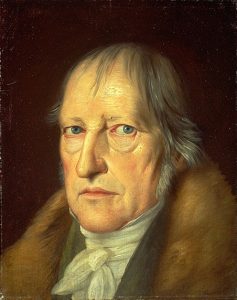
Remaining one of history’s most influential philosophers, Georg Hegel deserves his spot as number one. He believed that we can learn a lot from our ideological enemies, as truth is often fragmented between us and them. Hegel thought that progress is a shift between one extreme to the next – in politics this means we constantly shift from the left to the right, and only in doing so can we find the right balance. He thought this inevitable, saying that sometimes we must go from one mistake to the next, until eventually learning what the right choice is. He was a lot more pragmatic than other philosophers of his era, believing that we already have what is needed to build a better world, and just need to get better at using what we have. But he did note that new institutions should be born in each era. Zeitgeist was very much a factor of his worldview. I’ll admit that most people wouldn’t feature Hegel as number one on a list of German philosophers, and although I don’t agree with his views, he is incredibly interesting.

